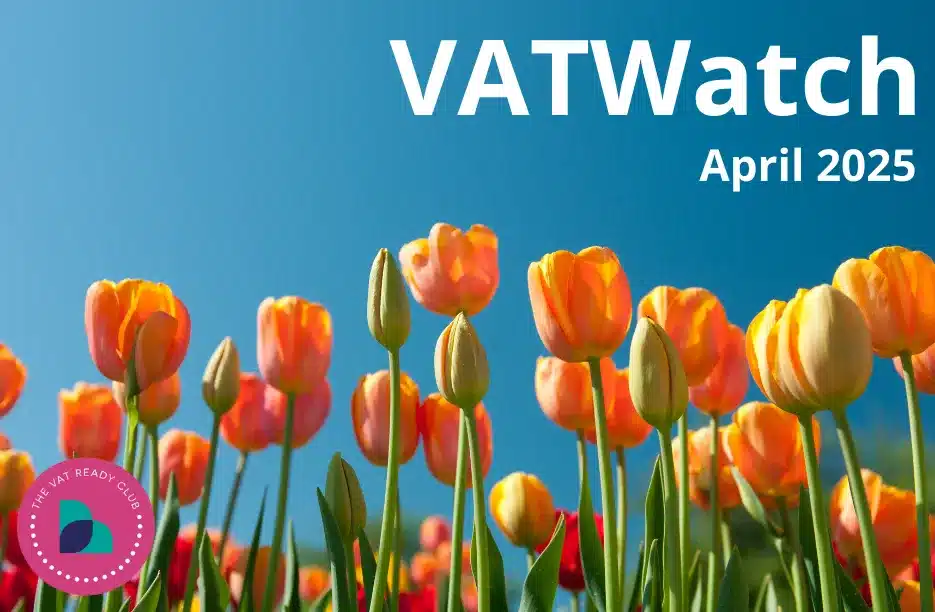What is the VAT Tax Point Date?
The tax point date for a supply is the date the item is bought or sold from a VAT point of view.
Why does the VAT Tax Point Date Matter?
The tax point date is the date the supply is counted for VAT purposes. It determines which VAT Return a sale is declared on or when input VAT on purchases can be recovered.
If there is a change in law or a change in VAT rate, the tax point date is used to determine which rules/rates apply to that particular transaction.
What is the Basic Tax Point Date for VAT?
For goods, the basic tax point is the date the goods are removed, or if they are not being removed, the date they are made available to the purchaser.
To give a very simple example, if you go into a shop, pick up a kettle, and take it to the till, the basic tax point date is the date you buy it.
If, instead, you order the kettle online, the basic tax point date is when the kettle leaves the factory or warehouse on its way to you.
For services, the basis tax point is the date the services are completed. For example, if a plasterer comes to plaster your walls, it is the date they finish the work which is the basic tax point.
When can the Tax Point be later than the Basic Tax Point Date?
If a VAT invoice is issued within 14 days of the basic tax point date, this becomes the actual tax point. The seller can choose to waive this rule and still apply the basic tax point date if preferred.
Example
You order some new mugs for your office on 1st May. The company ships them to you on 21st May. They raise an invoice on 31st May. You pay the invoice on 30th June.
The basic tax point in these circumstances would be 21st May but it is overridden by the actual tax point date of 31st May.
When is the Tax Point earlier than the Basic Tax Point Date?
If an invoice is raised, or a payment is made, before the basic tax point date, the earlier date becomes the actual tax point date.
Example
You order some new mugs for your office n 1st May. The seller requires payment up front before commencing production and so they raise an invoice on 2nd May which you pay on 5th May. The company then ships the mugs to you on 21st May.
The basic tax point in these circumstances would be 21st May but it is overridden by the actual tax point date of 2nd May.
What if more than one payment is made?
In some cases, a deposit might be paid up front, with the final payment being due at a later date. If this is the case, the transaction will have more than one tax point.
Example
You order some new mugs costing £500 for your office on 1st May. The seller requires payment of a £100 deposit up front before commencing production which you pay on 5th May. The company then ships the mugs to you on 21st May. They raise an invoice on 31st May. You pay the £400 balance on 30th June.
The basic tax point in these circumstances would be 21st May but it is overridden twice:
The actual tax point for the £100 deposit is 5th May as the date it was paid.
The actual tax point for the £400 balance is 31st May as the invoice was raised within 14 days of the basic tax point date.
What if a Service is never Complete?
As discussed above, the basic tax point date for a service is the date it is performed or completed.
Some services are never completed and are a continuous supply of services. An example might be consultancy work which is provided on an ongoing basis, or rent, where payments are made periodically but the building is provided to the tenant on an ongoing basis.
In these circumstances, there can be no basic tax point date for VAT as the service is never completed.
Where this applies, the earlier of the date of payment or invoice is used as the actual tax point.
Example
An office is leased with rent being invoiced on the 1st of each month and collected by Direct Debit 5 days later.
The actual tax point date will be the 1st of each month.
What about supplies with no VAT?
Where a supply has no VAT, for example it is exempt form VAT, or the supplier is not VAT registered, a VAT invoice cannot be raised. As such, the only options will be the basic tax point or the payment date.
This may be important when a non-registered seller is reviewing their turnover to see when/if they need to register for VAT.
What about Cash Accounting?
This is an optional scheme which a business can use where the VAT is accounted for based on the date of receipt or payment.
Cash Accounting will be covered in another blog post.
When might the VAT Tax Point Date be Important?
When there is a change in VAT rate
At the moment, because of COVID-19, there is a temporary reduced rate of 5% VAT for hospitality, hotel and holiday accommodation, and admission to certain attractions.
That reduced rate applies from 15 July 2020. At the time of writing, it is set to rise to 12.5% with effect from 1 October 2021 and then go back up to 20% from 1 April 2022.
It is therefore crucially important that businesses in those sectors know the tax point date of the supply they are making as the VAT treatment of a supply with a tax point of 30 September 2021, for example, will be very different from a supply with a tax point date of 1 October 2021.
A £100 VAT inclusive room booking would be worth £95.24 to an hotel if payment was received on 30th September 2021. If the payment was not made until until 1 October 2021, the hotel would only retain £88.89.
This also gives a planning opportunity for those businesses – bookings which are made and invoiced or paid for before 30 September 2021 can qualify for the reduced 5% rate even if the stay takes place after the rates go up.
When there have been rate changes in the past, the government has often introduced anti-forestalling legislation – rules which prevented businesses from artificially bringing forward the tax point to benefit from a lower VAT rate. This time, they have specifically stated that, as the intention here is to provide a benefit to those businesses most impacted by COVID-19, the normal tax point rules will apply.
When payment is made over a period of time
Sometimes, particularly in relation to sales of land, payment might be made in tranches with, for example £100,000 + VAT payable on completion, and a further £2,400,000 + VAT being due 12 months later.
The tax point date for the entire £2,500,000 would be the date of completion, meaning that the total VAT of £500,000 would be payable on the VAT Return covering that date. This can cause a severe impact on cash flow as only £120,000 would have been received from the buyer at that point in time.
This must be borne in mind when negotiating and drafting sales contracts.
How can Bevan VAT Consultancy Limited help you?
If you are considering when you need to register for VAT, if you are operating in the hospitality sector, if you provide continuous services, if you are in the construction industry, or if you deal with deposits or deferred payments, tax point dates may be crucial to the operation of your business.
We can review your systems and procedures, or comment on individual transactions. Get in touch for a chat today.
23 June 2021




